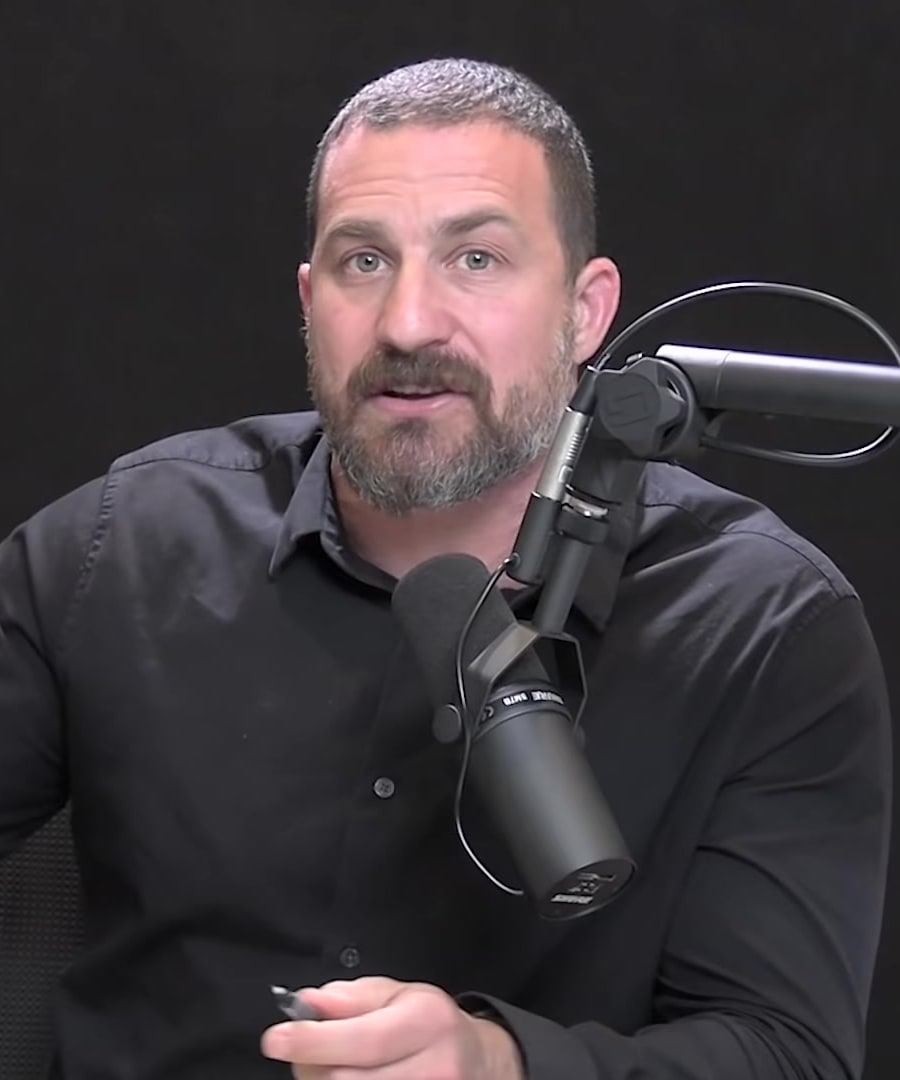Thanks for making the tool. Its wonderful!
Sources:
I'm glad to hear that you find the tool wonderful! If you have any specific questions or need further assistance with the knowledge of the , feel free to let me know how I can help.
Thank you for your feedback!RELATED QUESTIONSepa benefits
Sources:
EPA (eicosapentaenoic acid) is a type of omega-3 fatty acid that has numerous benefits and potential for improving health. This has been discussed on the podcast by in various contexts. Below are some key benefits of EPA as described by Dr. Huberman:
-
Depression Relief: A certain intake level of EPA has been shown to relieve some symptoms of major depression, to the extent that they match SSRIs (Selective Serotonin Reuptake Inhibitors), which are common antidepressants. Consuming EPA can also potentially lower the effective dose of prescription antidepressants 1.
-
Cardiovascular Health: Intake of EPA has dose-dependent benefits, including an approximate 9% improvement in cardiovascular health for every gram consumed, although this effect varies across studies 1.
-
Enhanced Mood and Joint Health: Regular supplementation of EPA, according to Dr. Huberman's personal experience, can lead to better mood and healthier joints. He makes a point that, while this is his subjective experience, there's a general consensus on its mood-enhancing effects 2.
-
Mood Regulation: The consumption of EPA, either through food sources or supplements, alongside regular exercise, can have an indirect positive effect on mood regulation by affecting the tryptophan to serotonin conversion pathway 3.
-
General Brain Health: EPA is important for healthy brain function in the short and long term. Ingesting one to three grams per day of EPA may improve mood and well-being, with some studies suggesting it can be helpful for those taking antidepressants and for maintaining cognitive function 4.
It is also mentioned that these effects can be achieved by consuming foods rich in EPA, such as fatty fish, krill oil, or plant sources of EPA, or through the use of supplements 4. Always consult a healthcare professional before starting any new supplement regimen.
RELATED QUESTIONS-
does emir work
I have not found any information or discussions related to "Emir" specifically working within the data from the . "Emir" might refer to a concept, product, or an individual's name. To provide the most accurate information, I would need more context or details about what "Emir" refers to in this case. Please provide me with additional information so that I can assist you effectively.
RELATED QUESTIONSdoes emdr work
Sources:
EMDR (Eye Movement Desensitization and Reprocessing) is a therapeutic method that involves the patient making lateral eye movements while recounting a traumatic experience. It is used to reduce the psychological distress associated with trauma. According to , EMDR appears to work by reducing activation of the amygdala and related circuitries, which decreases anxiety and the amplitude of the "threat reflex," thus reducing sympathetic autonomic arousal and making individuals feel calmer or less stressed when moving their eyes from side to side 1.
EMDR has been shown to be particularly beneficial for single-event traumas rather than prolonged or complex trauma, such as a bad marriage or an entire childhood. The lateralized eye movements can aide in reducing the physiological response to a traumatic event, but the therapy might not include an active component of relearning a new narrative and attaching reward, which are also important for addressing trauma 2.
While many people have achieved relief with EMDR, and other experts, such as , suggest that more research is needed on EMDR to fully understand its effectiveness and the mechanisms involved 3. It's not considered to be a complete therapy for fear and trauma on its own and is unlikely to be universally effective for every individual 2. Dr. Spiegel also questions the necessity of the lateral eye movements themselves in the therapy's effectiveness 3.
For those considering EMDR, it is generally recommended to consult with a licensed clinician trained in the method, and as always, individual results may vary.
RELATED QUESTIONSdoes emdr work
Sources:
EMDR, or Eye Movement Desensitization and Reprocessing, is a therapy used to alleviate the distress associated with traumatic memories. has discussed its potential mechanism of action, suggesting it could work by reducing the activation of the amygdala, thereby diminishing anxiety and the amplitude of the "threat reflex" through lateralized eye movements. This process might help make individuals feel calmer when recounting traumatic events 1.
EMDR has shown to be particularly beneficial for single-event traumas rather than complex, prolonged trauma. It may not fully address the relearning of a new narrative with positive associations, which is likewise vital for overcoming trauma. Nonetheless, lateralized eye movements can help dissociate the emotional experience of particular traumas, making them less distressing 2.
Despite some research supporting its use, more studies are needed to fully understand EMDR's effectiveness, and there is debate regarding the necessity of the eye movements themselves 3. Therefore, while many individuals report relief from EMDR, it may not be a complete therapy for fear and trauma on its own 2.
RELATED QUESTIONSpost nasal drip
Sources:
The has discussed the oral cavity and the importance of nasal breathing, especially at night, to maintain oral health. However, there does not seem to be a specific mention of post nasal drip in the episodes covered so far. While the oral cavity's pH balance and its role in preventing harmful bacteria growth were discussed, as well as the recommendation to be a nasal breather to stave off issues like dry mouth and potential oral health problems, post nasal drip itself was not directly addressed by in the provided data 1. Post nasal drip is a condition where mucus from the nasal passages drips down the back of the throat, which can lead to throat irritation and coughing. If there are any other questions or a different aspect of nasal health you'd like to explore, please let me know.
RELATED QUESTIONSeduce mucas
Sources:
To reduce mucus and maintain a good defense system against infection, suggests focusing on keeping a healthy microbiome. This involves fostering beneficial bacterial organisms along your mucus pathways, which includes the nasal specific microbiome and other microbiota all along the digestive tract, each differing in their specific locations from the mouth to the intestines and further. A healthy microbiome can help ensure that the mucus lining is effective at trapping harmful substances and allowing the passage of beneficial nutrients.
The key ways to maintain a healthy microbiome, as discussed by , include regular sleep, exposure to sunlight, good nutrition, and other generic health practices. The microbiome needs to be in good condition to support a mucus lining with the correct chemistry to protect our body's defense systems. The overall health of the microbiome, not just in the gut but across all mucus pathways such as the eyes, nasal passages, and genitalia, is crucial for maintaining an effective barrier and therefore reducing excessive mucus 1.
RELATED QUESTIONSantihistamines
Sources:
discusses how antihistamines might impede some of the benefits of cardiovascular exercises such as running or swimming and also interfere with the processes connected to resistance training. The adaptation to the stress encountered during these activities is essential for improving performance and muscle hypertrophy. Antihistamines work by blocking mast cells, crucial in the body's immune function, which can reduce the inflammatory responses needed for muscle adaptation. He also mentions non-steroid anti-inflammatory drugs (NSAIDs), highlighting that both antihistamines and NSAIDs can prevent some of the gains in endurance, strength and size that exercise is meant to provide. Therefore, one should be cautious about using these types of medications, especially around the time of exercising 1.
RELATED QUESTIONS
Thanks for making the tool. Its wonderful!
- Thank you for your feedback!RELATED QUESTIONS
epa benefits
- RELATED QUESTIONS
does emir work
- RELATED QUESTIONS
does emdr work
- RELATED QUESTIONS
does emdr work
- RELATED QUESTIONS
post nasal drip
- RELATED QUESTIONS
educe mucas
- RELATED QUESTIONS
antihistamines
- RELATED QUESTIONS









